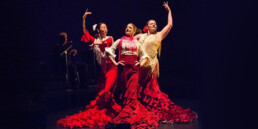A guest blog by an anonymous Early Career Teacher.
Most of my education and my upbringing focused on the mind. School, sixth-form, university taught me how to interpret, how to explore ideas and how to critically analyse the world. Developing the mind was always the focus point. Whatever decision I made, whether academically, personally or professionally, I thought it through. Thinking is an analytical process, one which takes time and effort. It also requires the very same skills that my education has taught me; interpretation, exploring ideas and critical analysis. These are undoubtedly important skills and I’m very grateful for having learnt them. However, having recently made a thought-out decision which later turned out to be a very difficult one, I realised that I neglected another meaning-making and interpretive vessel – one which is just as important – and that is my body. The body makes decisions just like the mind, and yet I’ve never been taught to listen or trust my body in the same way.
Last year, I went to interview at a London school which had an Outstanding Ofsted rating. It had an interesting and diverse curriculum, and my PGCE tutor knew the school a few years back and had recommended it to me. On paper, all seemed good. When I entered the corridors, I remember it being chaotic and busy. Students everywhere; some running, others throwing basketballs. There was a frantic energy in the air. My interview lesson was just as energetic; some students were keen to get involved and answer questions while there were others who had their heads down sleeping on the desk. Looking back, I was very naïve to ignore the signals that rightly suggested that this school was in a difficult phase of its journey. Yet my mind kept rationalising: “every teacher I’ve spoken to speaks positively about the school”, “I trust my PGCE tutor”, and “this is rated Outstanding”.
As I left the interview, my body felt unsettled and uncomfortable. I remember having a tension in my stomach which I couldn’t explain. While I recognised the discomfort, I neglected to listen to it and, ultimately, I trusted my rational mind over my “emotional” body. I started working at the school in July, and it was a very challenging experience. I felt the toxicity of the school start to take over my life, and my mental health became damaged as a result. Ironically, it was often my body that was affected. I rarely had the energy to exercise, and I started to have panic attacks and night-sweats. I often look back to that moment of discomfort and wish I had listened to what my body was trying to tell me.
I left the school in April and decided to do a Flamenco course in Seville. I had no experience with Flamenco and I had no idea what it even looked like. Naturally my friends and family were pretty surprised at my choice, and honestly so was I. Perhaps without consciously realising it, I chose a course focused on the body; how to listen, respond and physically self-express. Every lesson, my teacher would shout “FUERTE” (strength) to remind us that our bodies are our core and it is within our anchorage, our root, that we find power. It was the first time where I was taught how to tap into and navigate the language of the body. I realised how often I curl or twist my body in a way to hide it or make myself smaller, but Flamenco taught me the opposite. It’s about opening up, letting your physical presence be seen and felt. Through this dancing, I actually recognised and listened to my body, and allowed it to be open to the world. We need to trust our physical responses and intuitions just as much, if not more, than our rational and critical mind. Our body is a meaning-making vessel that can tell us much more of our authentic selves, desires, decisions, than our mind can. My biggest lesson I’ve learnt from this challenging teaching experience is to trust my body more and, in doing so, allow my body to carve the pathway where onto next.


